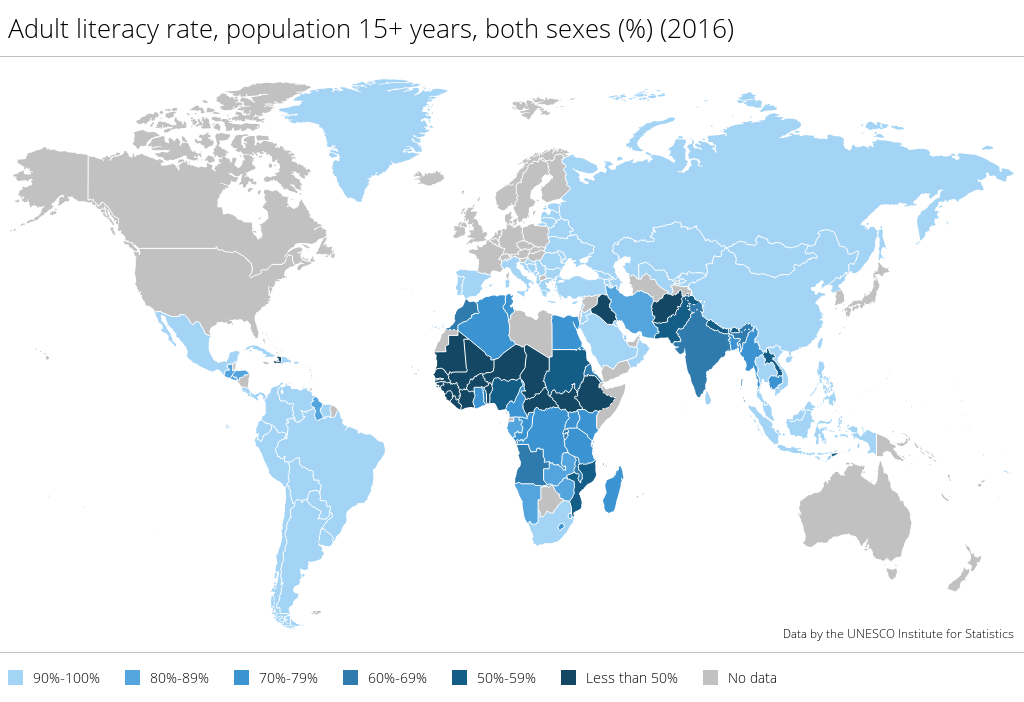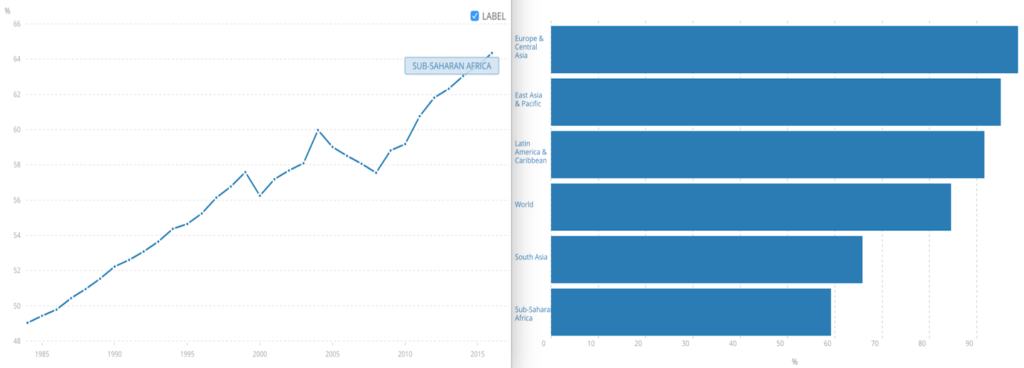To be able to make informed decisions, an essential skill to have is the ability to read and understand – as such, one must be literate be it in their mother-tongue or otherwise. To be well-informed comprises the aptitude to ask intelligent and relevant questions, engage in debate and ability to deduce knowledge from presented material. The absence of this skill means a person cannot perform task such as filling out job applications, reading prescriptions, or reading a bank statement; the personal cost alone is huge, talk less of the wider societal effect. The presents a snapshot of the economic impact illiteracy has both locally and globally. A 2006 worldwide research estimated that about one in five people are illiterate with an annual economic cost pegged at around a trillion US dollars[1]. Is it any wonder then, when so many people do not have the skills to contribute to growth via incapability to financially contribute to society?

Unfortunately, in Sub-Saharan Africa, adult literacy rates are still high. UNESCO statics report that more than one in three adults on the continent cannot read[2]. Without these basic skills necessary for personal growth, those with inadequate levels of literacy cannot be filly involved in social and political discourse, but most importantly, cannot possibly make informed decisions that help shape policies in their communities. The pertinent question to be asked is; how does this group of peoples’ involvement in civic processes shapes important sectors of the economy; from health, to crime, to education? Several studies showed adult literacy had intrinsic values including improved self-esteem, creativity and critical thinking that directly or indirectly lead to increased political participation, improved health and social integration[3].

With approximately a third of global illiterates residing in Africa, (27% of all illiterate adults live in sub-Saharan Africa and a further 9% in Northern Africa, figure 1) the consequences are far reaching, not only for this group but adversely for society and economically. The level of community involvement and civic participation is lowered for adults with low literacy proficiency. For Africa, this can be tied to the long-term GDP growth rate. But there is a changing tide as evidence show that Sub-Saharan Africa have made considerable strides in addressing this problem in a progressively increasing literacy rates (figure 1). In realising the import of empowering their illiterate adults, some countries have taken affirmative initiatives to change this narrative by allocating big budgets to education. One such success story is Botswana which increased its adult literacy rate to 87% in 2008, up from 69% in 1991.

Clearly, the alliance of governments and charitable organisations are proactively working to increase the literacy rates on the continent by laying foundations for this generation. In so doing, they ensure that subsequent generations are more literate to allow meaningful contribution to society both politically and economically. Data available from UNESCO[7] which charts the progress of adult literacy highlights that literacy rates continue to rise from one generation to the next; adult literacy has grown by only 4% globally showing that, although positive, we still have some way to go.
[1] Leitch, S (December 2006); Leitch Review of Skills: Prosperity for all in the global economy – world
[2] UNESCO Institute for Statistics. “Adult and Youth Literacy” UIS Fact Sheet. September 2014.
[3] http://unesdoc.unesco.org/images/0019/001905/190571E.pdf
[4] UNESCO Institute for Statistics, July 2017
[5]https://data.worldbank.org/indicator/SE.ADT.LITR.ZS?end=2016&locations=ZG&start=1984&type=shaded&view=chart
[6]https://data.worldbank.org/indicator/SE.ADT.LITR.ZS?end=2016&locations=ZG&start=1984&type=shaded&view=chart
[7] http://uis.unesco.org/sites/default/files/documents/fs45-literacy-rates-continue-rise-generation-to-next-en-2017_0.pdf



















It is very informative. Thank you for sharing this nice blog!
good thanks